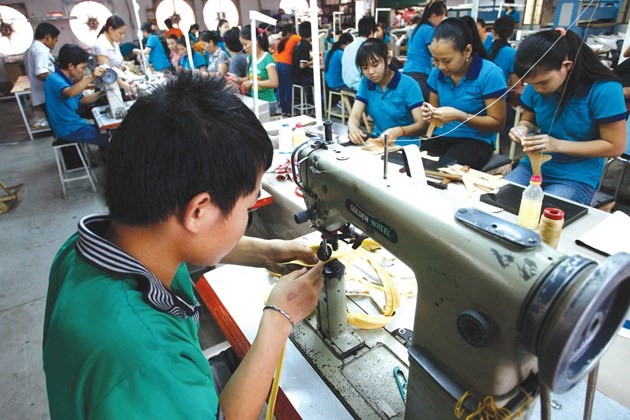 Economy
Economy

After free trade agreements (FTAs) are implemented, there is room for the Government of Việt Nam to make policies to support domestic industries and enterprises, enabling them to cope with challenges arising from rapid international integration.
 |
| After free trade agreements (FTAs) are implemented, there is room for the Government of Việt Nam to make policies to support domestic industries and enterprises, enabling them to cope with challenges arising from rapid international integration. — Photo taichinhdientu.vn |
HÀ NỘI – After free trade agreements (FTAs) are implemented, there is room for the Government of Việt Nam to make policies to support domestic industries and enterprises, enabling them to cope with challenges arising from rapid international integration.
Vietnamese policy space is limited by pre-existing mutual commitments. But the Government could still take advantage of remaining options after implementing the World Trade Organisation (WTO), Trans-Pacific Partnership (TPP) and other FTAs, to provide domestic enterprises with supports in line with international commitments, Nguyễn Thị Thu Trang, Director of the Centre for WTO and Economic and Integration, said at a conference yesterday.
At the conference hosted by the Việt Nam Chamber of Commerce and Industry (VCCI) in Hà Nội, Trang said support policies were necessary to ensure that socio-economic development was on track.
Citing the wood processing and retail industries, Trang said local firms faced a number of potential risks, not only at home but also in foreign markets.
“The deeper the integration, the stricter the commitments, especially in environmental protection and product quality,” Nguyễn Mạnh Dũng, from the Ministry of Agriculture and Rural Development said, adding that supports were necessary.
Most importantly, local firms must be aware of FTAs and active in both improving their competitiveness and preparing for integration, Dũng said.
Experts at the conference discussed measures to help the retail and wood processing industries deal with obstacles and enable them to grasp opportunities from FTAs. The experts also said there was a lot of room for government policy initiatives serving these two Vietnamese important industries.
According to Trang, more than 50 per cent of local businesses are involved in retailing, plus, there are more than two million household businesses and about 1,750 foreign-invested firms, with an estimated total workforce of three million labourers.
Meanwhile, risks appear to be more transparent in the retail industry, due to massive foreign direct investment in modern retail channels against which traditional channels are unable to compete. “This can push domestic production into difficulties in selling products,” Trang said.
Đinh Thị Mỹ Loan, President of the Việt Nam Retailers’ Association, said the circulation of goods, shortage of qualified labour and difficulties in raising capital also presented obstacles.
“It is important to improve the source of goods for local retailers, which requires producers and distributors to connect better with each other,” Loan said.
She said policies to encourage the training of workers for the retail industry were also recommended, along with policies on investment and tax incentives.
For the wood processing industry, which provides 300,000 jobs, there are risks related to the legality of wood origins, control over the supply chain, labour use, and shortages of import market information, Tô Xuân Phúc, the WTO Centre’s project specialist said.
“Support should enable firms to avoid these risks and to grasp opportunities to boost exports,” Phúc said.
He said it was important to establish an inspection mechanism to ensure the legality of wood origins, follow the demands of each import market, and create effective control over the value chain.
According to Trần Hữu Huỳnh, president of the VCCI Committee on International Trade Policies, the feasibility of proposed policies must be carefully considered with regard to State resources. The impact of policies changes on related parties in the value chains must also be evaluated, Huỳnh said. - VNS




